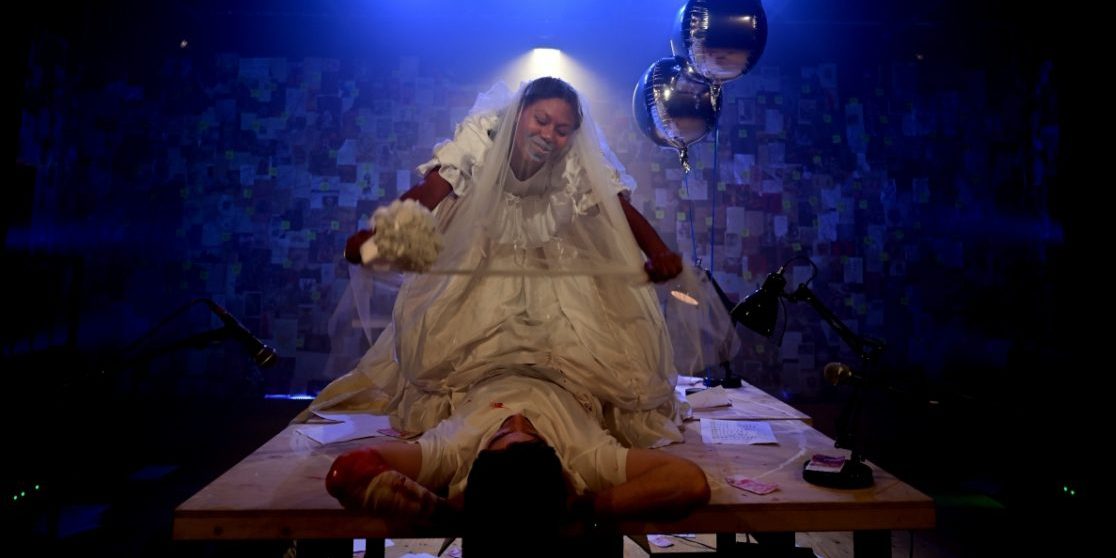Would you make a deal with the devil to trade 24 years of fun for an eternity of torment? That is the question at the heart of Marlowe’s play that explores the depths of human depravity, the heights of our emotions and ambitions, and the deals we are willing to make to extend both.
Doctor Faustus is a raucous, knockabout, and high-energy production that never shies away from its earthier elements. There is blood and gore aplenty as well as highly sexualised behaviour and imagery. It is not all in the best possible taste, but it is enormous fun. Of what little I know of Christopher Marlowe, I feel he would have liked it.
The production incorporates musical numbers, mystical elements, and an array of styles from farce to high art and generally, does so well. The Seven Deadly Sins musical number was particularly engaging with a number written by composer Bobby Locke that was simplistic (sample lyric: I’m a sexy, sexy sin) but catchy as – well – hell! And the scene where the pope and his acolytes were made to dance the Hokey Cokey was not just funy, but reminiscent of other pop culture examples (I am thinking particularly here of the Banana Boat Song scene in Beetlejuice, which I am sure Director Ricky Dukes must have been referencing) to speak well to a modern audience.
The whole production rests on the shoulders of the good Dr. Faustus himself played admirably by Jamie O’Neill who has the presence to carry a show in which he was never offstage. For me, though, the standout performance was the devilish David Angland as Mephistopheles. He turned in a performance that was as believable when he was a put-upon servant to his temporary master’s whims and when he was a playful sprite, toying with the inflated ego of his human prey. Equal parts taciturn and powerful Angland truly delivered someone you could see leading you into temptation.
The play’s world was exceptionally well served too by the set, designed by Sacha Corcoran. The intricacy of the back wall collage gave depth to the depravity that Faustus had sunk to before we joined his story, as well as texture to a world of demons and necromancy. The simplicity of the three-desk setup also worked well as these became everything from a demonic circle t the dinner table of the pope.
The play felt a little disjointed and out of order at times. We saw most of Faustus having his fun with his pact towards the end, and more of his horror at the beginning. This didn’t always quite work as a way of building and maintaining dramatic tension.
The complexity of staging a play about religious morality and questions in a secular age is not to be underestimated. Modern audiences are less likely to take questions of god and the devil as literally as those watching the play originally presented. But this does not mean that we cannot understand the meaning of temptation – or the bargaining we all make between short-term gratification and long-term payoff. The most affecting part of the scr0pt for me was when Faustus was trying to bargain an endpoint to his eternal torment of “a thousand or even a hundred thousand years” so daunting is the notion of forever.
This is a highly entertaining and extremely accessible production of this classic play. The time skipped by in a whirl of colour, blood, sex, and action. Never boring, even if occasionally a little baffling, Lazarus productions have once again managed to breathe life into a once-dead play.

